Bradford Cathedral held ‘Faith and Politics: The Bradford Declaration 90 Years On’ on Saturday 28th October, an event that explored the complex relationship between faith, politics and ideology.
The event was timed to mark 90 years since German pastor Dietrich Bonhoeffer visited Bradford and made, what would later be known as, the Bradford Declaration. In it he spoke out against the Nazification of the Church and, in so doing, publicly opposed the Nazi government, an act that would ultimately lead to his execution in April 1945.
This event was part of the Diocese of Leeds welcome of German partners from our link churches in the city of Erfurt, who arrived in the Cathedral for refreshments ahead of the special Evensong and lectures. The Erfurt-Leeds/Bradford partnership was set up under the Meissen Agreement to strengthen relationships between the English and German churches and has been active since 1997.
“As we mark the 90th anniversary of the Bradford declaration, we give thanks for the life, work and death of Dietrich Bonhoeffer, for its many aspects, but in particular for his calls for political engagement.”
The Revd Colin Penfold
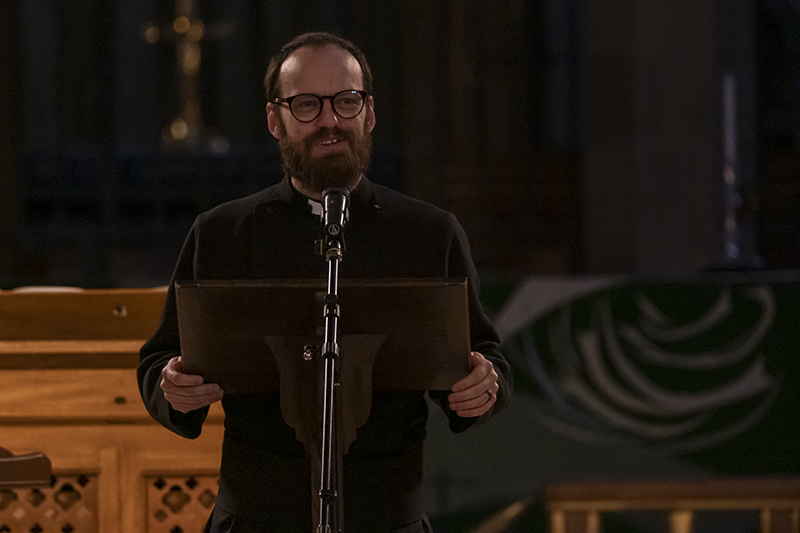
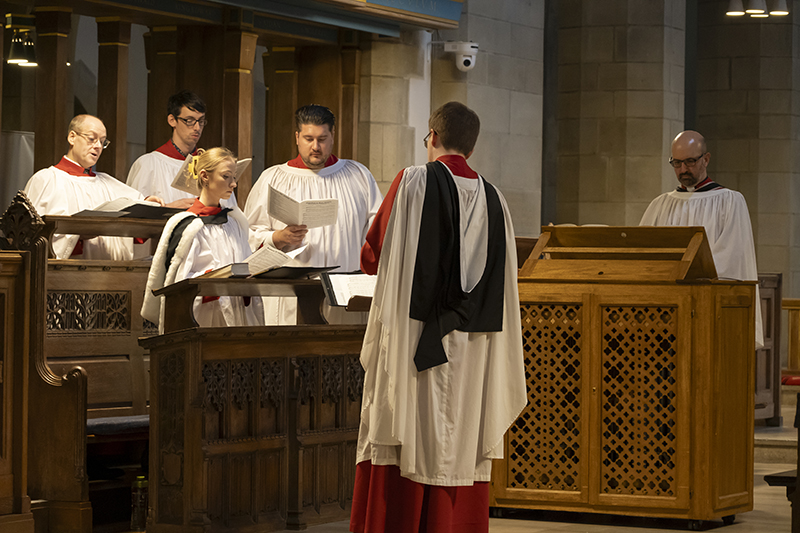
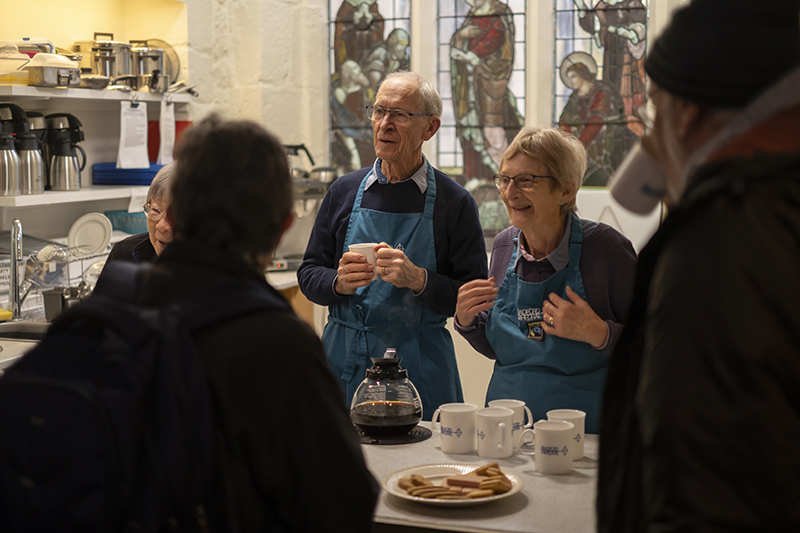
The afternoon began with a special partially-bilingual hour-long Choral Evensong, where Three Prayers by Dietrich Bonhoeffer was sung to a setting by Yorkshire composer Philip Moore. The four-piece consort was conducted by Assistant Director of Music Anthony Gray and accompanied by the Revd Pete Gunstone on the chamber organ, and the service was led by the Revd Colin Penfold, who began by acknowledging the various anniversaries that coincided with the service and event: 90 years since the Bradford Declaration in 1933; 26 years that weekend since the two Synods signed a formal partnership agreement in the Cathedral; and 40 years since the 1983 commemorations of the centenary of the birth of Martin Luther. The service also included organ pieces; contributions from members of the German delegation; and intercessions led by Dr Matthias Rein.
“It’s great to see so many of you, particularly our guests from Erfurt.”
The Revd Canon Ned Lunn
Following the service, the Revd Canon Ned Lunn introduced the symposium, which included three lectures from invited guests: Dr Matthias Rein, the Revd Dr Noel Irwin, and the Rt Rev. Nick Baines.
“We’ll hear from them about the legacy of Bonhoeffer, in different contexts, in Germany in the later part of the 20th century, in Ireland, across Europe, and the UK as well.”
The symposium began with a hymn, written by Bonhoeffer, sang in German, led by Dr Matthias Rein.
“Thank you for all your great hospitality, for all the time you share with us, and the kindness… it’s a pleasure for us to remember the Bradford Declaration.”
Dr Matthias Rein
Following the hymn, Dr Rein began the first of three lectures, with an English introduction and then spoken in German, but which was available as a translation in the booklet provided on the day.
“The first thing I want to say is that Bonhoeffer is still really important. [I’m speaking on] the relationship between faith and protest, whether that’s violent or non-violent, and looking at it in contested times, which is incredibly important.”
The Revd Dr Noel Irwin
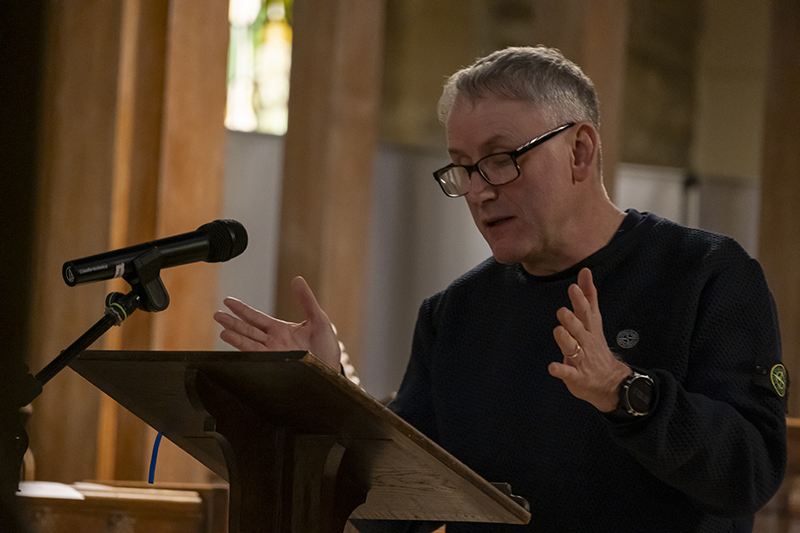
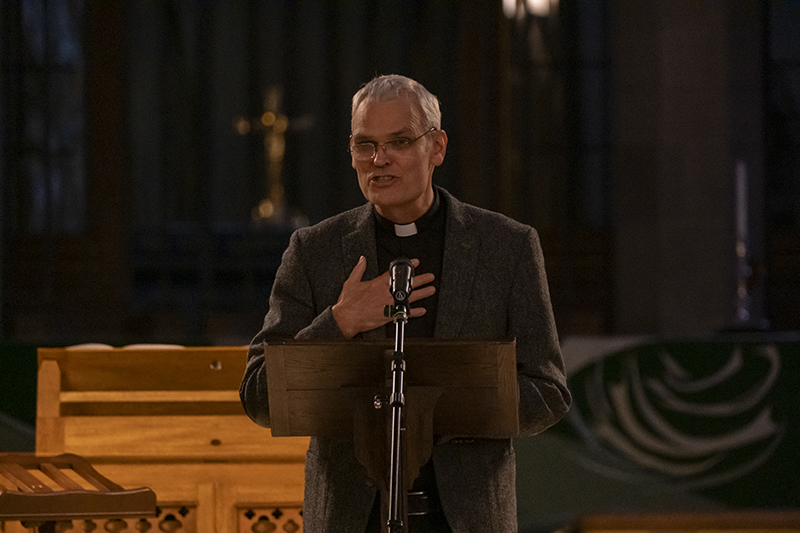
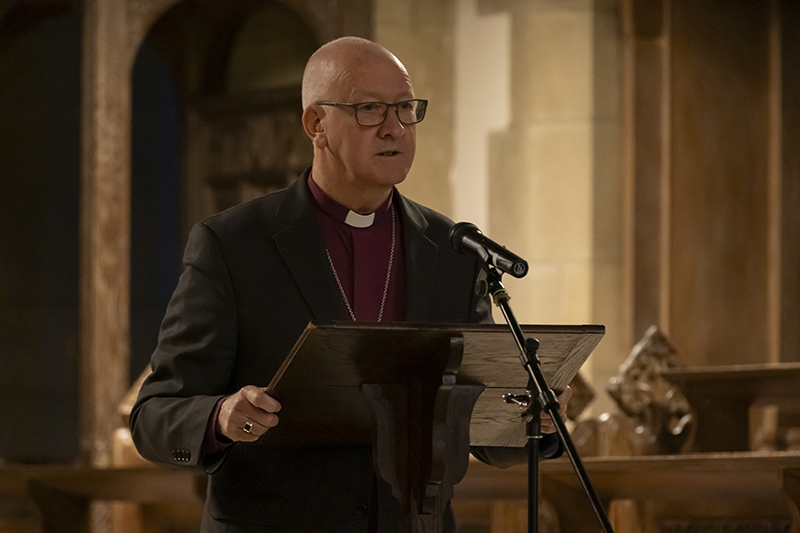
The Revd Dr Noel Irwin, a Methodist Minster who also teaches community development, followed, speaking on Bonhoeffer impact on his reflections of Northern Ireland, and the troubles there. He was joined at the event by one of his PhD students, who lectures in Myanmar, whose proposed PhD was on applying Bonhoeffer to the situation in that country.
“I could stand here all day talking about this sort of thing. I think we’ve had two very rich presentations already, so what I’d like to do is – rather than do substance – use some of my experiences from which we can then hear or say something about Bonhoeffer.”
The Rt Rev. Nick Baines
The third and final speaker was the Rt Rev. Nick Baines, Bishop of Leeds, who worked as a translator in the south of Germany whilst he studied, and has a long-standing interest in the country. His lecture included talk about his experience in the House of Lords, and his times in Germany.
“The challenges we face are how do you cope when you have Governments that lie, or are corrupted ethically.”
The final thirty-five minutes of the symposium was taken up with a Q&A. Questions included about letter-writing to local MPs and how helpful that is; what Bonhoeffer might say about how we can work with people of other faiths or none; and how people can approach tackling beliefs in misinformation held by friends or family, covering topics such as mental health, online relationships, and the importance of listening.
The event was drawn to a close by Canon Ned. “I’d like to thank our three speakers, for all that you’ve given to us to reflect on.”
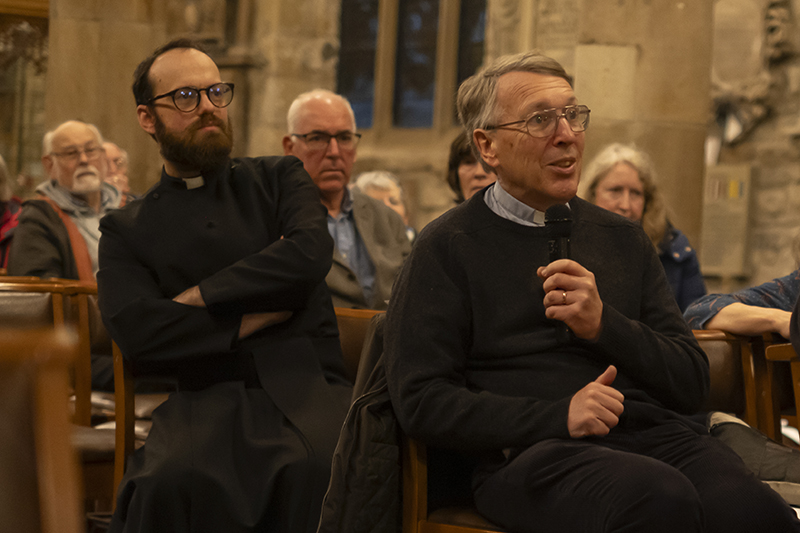
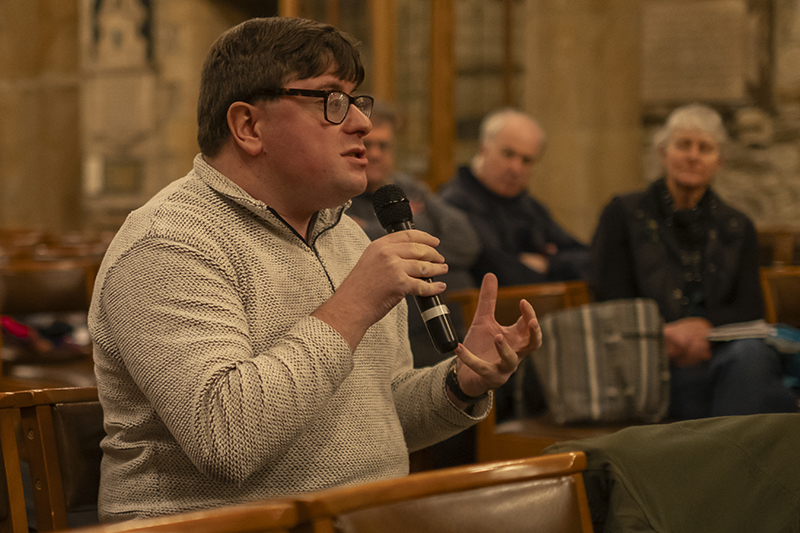
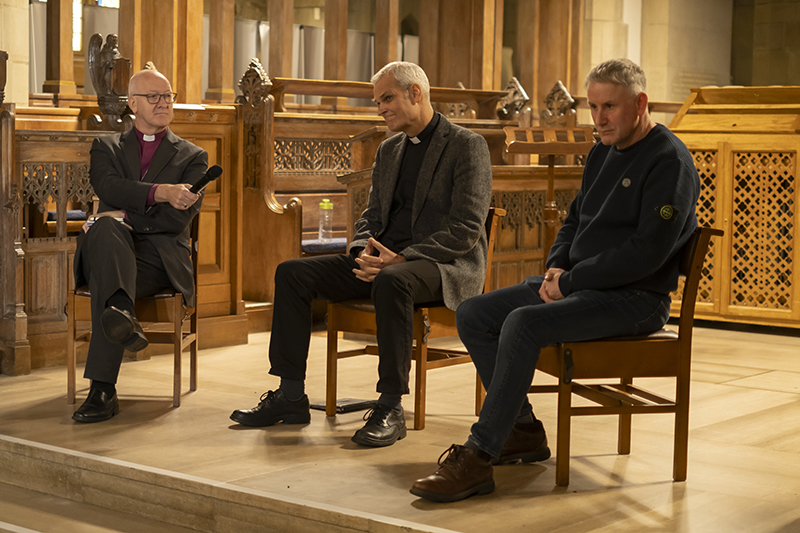
Many thanks for organizing this event which encapsulates so much of what makes Bradford. To welcome an Erfurt group is always very special and it seemed ideal then to be led by Dr Matthias Rein presenting his paper on the work of Dietriech Bonhoeffer. Dr Noel Irwin’s interpretation of action for peace in the setting of Northern Ireland was both informative and challenged us to engage through the context of community and relationships. Bishop Nick’s overview took us through some points of action and the experience of ‘standing in the place’ to give greater depth to our understanding. Perhaps his greatest challenge was that, in a changing and uncertain context, we still need to take action and learn to trust each other. So true in a world where mis/dis information is so easily spread.
[Website comment]
“[It was] a memorable afternoon to celebrate a wonderful man, and to enjoy fellowship with our friends from Germany. We knew three lectures on theology would make us raise our game, but readings and a hymn in German raised it even further! Thank you so much to everyone who organised and took part in it.
[Facebook comment]

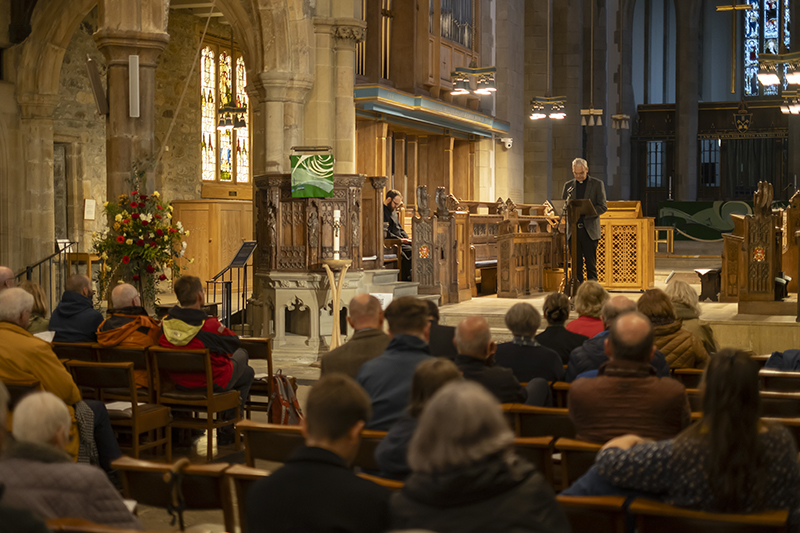
I was very impressed by the Evensong at Bradford Cathedral. The music was beautiful and the choir was excellent. The symposium was also very interesting. I learned a lot about faith and politics.
Thank you for your kind words and for joining us for the event. We hope to see you at Bradford Cathedral again soon.